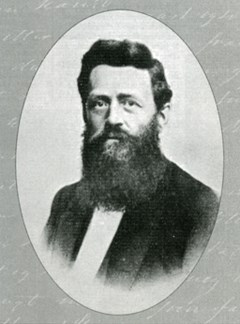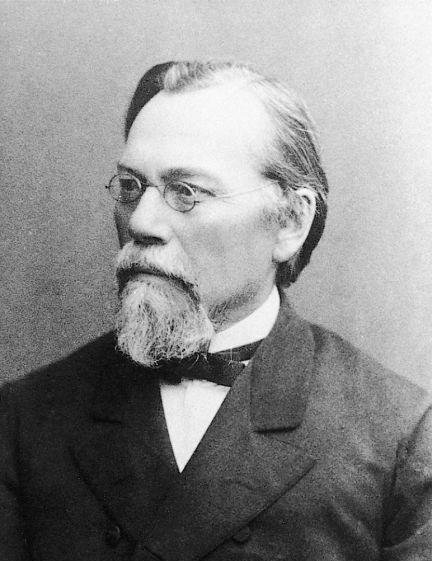|
Henrik Krohn
Henrik Krohn (10 May 1826 – 14 June 1879) was a Norwegian poet, magazine editor and proponent for Nynorsk language. Biography Krohn was born in Bergen on 10 May 1826. Among his works is the poetry collection ''Smaakvæde'' from 1867. He founded the Nynorsk Nynorsk (; ) is one of the two official written standards of the Norwegian language, the other being Bokmål. From 12 May 1885, it became the state-sanctioned version of Ivar Aasen's standard Norwegian language (''Landsmål''), parallel to the Da ... organization Vestmannalaget in 1868, and edited the organization's magazine ''Fraa by og bygd''. A collection of his works was published in 1909. References 1826 births 1879 deaths Writers from Bergen 19th-century Norwegian poets Norwegian male poets Norwegian magazine editors Nynorsk 19th-century Norwegian journalists Norwegian male journalists 19th-century Norwegian male writers {{norway-writer-stub ... [...More Info...] [...Related Items...] OR: [Wikipedia] [Google] [Baidu] |
Nynorsk Language
Nynorsk (; ) is one of the two official written standards of the Norwegian language, the other being Bokmål. From 12 May 1885, it became the state-sanctioned version of Ivar Aasen's standard Norwegian language (''Landsmål''), parallel to the Dano-Norwegian written standard known as Riksmål. The name Nynorsk was introduced in 1929. After a series of reforms, it is still the written standard closer to , whereas Bokmål is closer to Riksmål and Danish. Between 10 and 15 percent of Norwegians (primarily in the west around the city of Bergen) have Nynorsk as their official language form, estimated by the number of students attending secondary schools. Nynorsk is also taught as a mandatory subject in both high school and middle school for all Norwegians who do not have it as their own language form. History Norway had its own written and oral language— Norwegian. After the Kalmar Union, Norway became a less important part of Denmark. At that time, Danish was declared the writt ... [...More Info...] [...Related Items...] OR: [Wikipedia] [Google] [Baidu] |
Bergen
Bergen (, ) is a city and municipalities of Norway, municipality in Vestland county on the Western Norway, west coast of Norway. Bergen is the list of towns and cities in Norway, second-largest city in Norway after the capital Oslo. By May 2025 the population is 294 029 according to Statistics Norway. The municipality covers and is on the peninsula of Bergenshalvøyen. The city centre and northern neighbourhoods are on Byfjorden (Hordaland), Byfjorden, 'the city fjord'. The city is surrounded by mountains, causing Bergen to be called the "city of Seven Mountains, Bergen, seven mountains". Many of the extra-municipal suburbs are on islands. Bergen is the administrative centre of Vestland county. The city consists of eight boroughs: Arna, Bergen, Arna, Bergenhus, Fana, Bergen, Fana, Fyllingsdalen, Laksevåg, Ytrebygda, Årstad, Bergen, Årstad, and Åsane. Trading in Bergen may have started as early as the 1020s. According to tradition, the city was founded in 1070 by King Ol ... [...More Info...] [...Related Items...] OR: [Wikipedia] [Google] [Baidu] |
Nynorsk
Nynorsk (; ) is one of the two official written standards of the Norwegian language, the other being Bokmål. From 12 May 1885, it became the state-sanctioned version of Ivar Aasen's standard Norwegian language (''Landsmål''), parallel to the Dano-Norwegian written standard known as Riksmål. The name Nynorsk was introduced in 1929. After a series of reforms, it is still the written standard closer to , whereas Bokmål is closer to Riksmål and Danish. Between 10 and 15 percent of Norwegians (primarily in the west around the city of Bergen) have Nynorsk as their official language form, estimated by the number of students attending secondary schools. Nynorsk is also taught as a mandatory subject in both high school and middle school for all Norwegians who do not have it as their own language form. History Norway had its own written and oral language—Old Norse, Norwegian. After the Kalmar Union, Norway became a Denmark–Norway, less important part of Denmark. At that time, Dani ... [...More Info...] [...Related Items...] OR: [Wikipedia] [Google] [Baidu] |
Store Norske Leksikon
The ''Great Norwegian Encyclopedia'' (, abbreviated ''SNL'') is a Norwegian-language online encyclopedia. It has several subdivisions, including the Norsk biografisk leksikon. The online encyclopedia is among the most-read Norwegian published sites, with up to 3.5 million unique visitors per month. Paper editions (1978–2007) The ''SNL'' was created in 1978, when the two publishing houses Aschehoug and Gyldendal merged their encyclopedias and created the company Kunnskapsforlaget. Up until 1978 the two publishing houses of Aschehoug and Gyldendal, Norway's two largest, had published ' and ', respectively. The respective first editions were published in 1906–1913 (Aschehoug) and 1933–1934 (Gyldendal). The slump in sales of paper-based encyclopedias around the turn of the 21st century hit Kunnskapsforlaget hard, but a fourth edition of the paper encyclopedia was secured by a grant of ten million Norwegian kroner from the foundation Fritt Ord in 2003. The f ... [...More Info...] [...Related Items...] OR: [Wikipedia] [Google] [Baidu] |
1826 Births
Events January–March * January 15 – The French newspaper ''Le Figaro'' begins publication in Paris, initially as a satirical weekly. * January 17 – The Ballantyne printing business in Edinburgh (Scotland) crashes, ruining novelist Sir Walter Scott as a principal investor. He undertakes to repay his creditors from his writings. His publisher, Archibald Constable, also fails. * January 18 – In India, the Siege of Bharatpur ends in British victory as Lord Combermere and Michael Childers defeat the princely state of Bharatpur, now part of the Indian state of Rajasthan. * January 30 – The Menai Suspension Bridge, built by engineer Thomas Telford as the first major suspension bridge in world history, is opened between the island of Anglesey and the mainland of Wales. * February 6 – James Fenimore Cooper's novel ''The Last of the Mohicans'' is first printed, by a publisher in Philadelphia. * February 8 – Unitarian Bernardino Rivadavia becomes the first Pr ... [...More Info...] [...Related Items...] OR: [Wikipedia] [Google] [Baidu] |
1879 Deaths
Events January * January 1 ** The Specie Resumption Act takes effect. The United States Note is valued the same as gold, for the first time since the American Civil War. ** Brahms' Violin Concerto (Brahms), Violin Concerto is premiered in Leipzig with Joseph Joachim as soloist and the composer conducting. * January 11 – The Anglo-Zulu War begins. * January 22 – Anglo-Zulu War – Battle of Isandlwana: A force of 1,200 British soldiers is wiped out by over 20,000 Zulu warriors. * January 23 – Anglo-Zulu War – Battle of Rorke's Drift: Following the previous day's defeat, a smaller British force of 140 successfully repels an attack by 4,000 Zulus. February * February 3 – Mosley Street in Newcastle upon Tyne (England) becomes the world's first public highway to be lit by the electric incandescent light bulb invented by Joseph Swan. * February 8 – At a meeting of the Royal Canadian Institute, engineer and inventor Sandford Fleming first prop ... [...More Info...] [...Related Items...] OR: [Wikipedia] [Google] [Baidu] |
Writers From Bergen
A writer is a person who uses written words in different writing styles, genres and techniques to communicate ideas, to inspire feelings and emotions, or to entertain. Writers may develop different forms of writing such as novels, short stories, monographs, travelogues, plays, screenplays, teleplays, songs, and essays as well as reports, educational material, and news articles that may be of interest to the general public. Writers' works are nowadays published across a wide range of media. Skilled writers who are able to use language to express ideas well, often contribute significantly to the cultural content of a society. The term "writer" is also used elsewhere in the arts and music, such as songwriter or a screenwriter, but also a stand-alone "writer" typically refers to the creation of written language. Some writers work from an oral tradition. Writers can produce material across a number of genres, fictional or non-fictional. Other writers use multiple media such a ... [...More Info...] [...Related Items...] OR: [Wikipedia] [Google] [Baidu] |
19th-century Norwegian Poets
The 19th century began on 1 January 1801 (represented by the Roman numerals MDCCCI), and ended on 31 December 1900 (MCM). It was the 9th century of the 2nd millennium. It was characterized by vast social upheaval. Slavery was abolished in much of Europe and the Americas. The First Industrial Revolution, though it began in the late 18th century, expanded beyond its British homeland for the first time during the 19th century, particularly remaking the economies and societies of the Low Countries, France, the Rhineland, Northern Italy, and the Northeastern United States. A few decades later, the Second Industrial Revolution led to ever more massive urbanization and much higher levels of productivity, profit, and prosperity, a pattern that continued into the 20th century. The Catholic Church, in response to the growing influence and power of modernism, secularism and materialism, formed the First Vatican Council in the late 19th century to deal with such problems and confirm cer ... [...More Info...] [...Related Items...] OR: [Wikipedia] [Google] [Baidu] |
Norwegian Male Poets
Norwegian, Norwayan, or Norsk may refer to: *Something of, from, or related to Norway, a country in northwestern Europe *Norwegians, both a nation and an ethnic group native to Norway *Demographics of Norway *Norwegian language, including the two official written forms: **Bokmål, literally "book language", used by 85–90% of the population of Norway **Nynorsk, literally "New Norwegian", used by 10–15% of the population of Norway * Norwegian Sea Norwegian or may also refer to: Norwegian *Norwegian Air Shuttle, an airline, trading as Norwegian ** Norwegian Long Haul, a defunct subsidiary of Norwegian Air Shuttle, flying long-haul flights * Norwegian Air Lines, a former airline, merged with Scandinavian Airlines in 1951 *Norwegian coupling, used for narrow-gauge railways *Norwegian Cruise Line, a cruise line *Norwegian Elkhound, a canine breed. * Norwegian Forest cat, a domestic feline breed *Norwegian Red, a breed of dairy cattle *Norwegian Township, Pennsylvania, USA Norsk ... [...More Info...] [...Related Items...] OR: [Wikipedia] [Google] [Baidu] |
19th-century Norwegian Journalists
The 19th century began on 1 January 1801 (represented by the Roman numerals MDCCCI), and ended on 31 December 1900 (MCM). It was the 9th century of the 2nd millennium. It was characterized by vast social upheaval. Slavery was Abolitionism, abolished in much of Europe and the Americas. The First Industrial Revolution, though it began in the late 18th century, expanded beyond its British homeland for the first time during the 19th century, particularly remaking the economies and societies of the Low Countries, France, the Rhineland, Northern Italy, and the Northeastern United States. A few decades later, the Second Industrial Revolution led to ever more massive urbanization and much higher levels of productivity, profit, and prosperity, a pattern that continued into the 20th century. The Catholic Church, in response to the growing influence and power of modernism, secularism and materialism, formed the First Vatican Council in the late 19th century to deal with such problems an ... [...More Info...] [...Related Items...] OR: [Wikipedia] [Google] [Baidu] |






